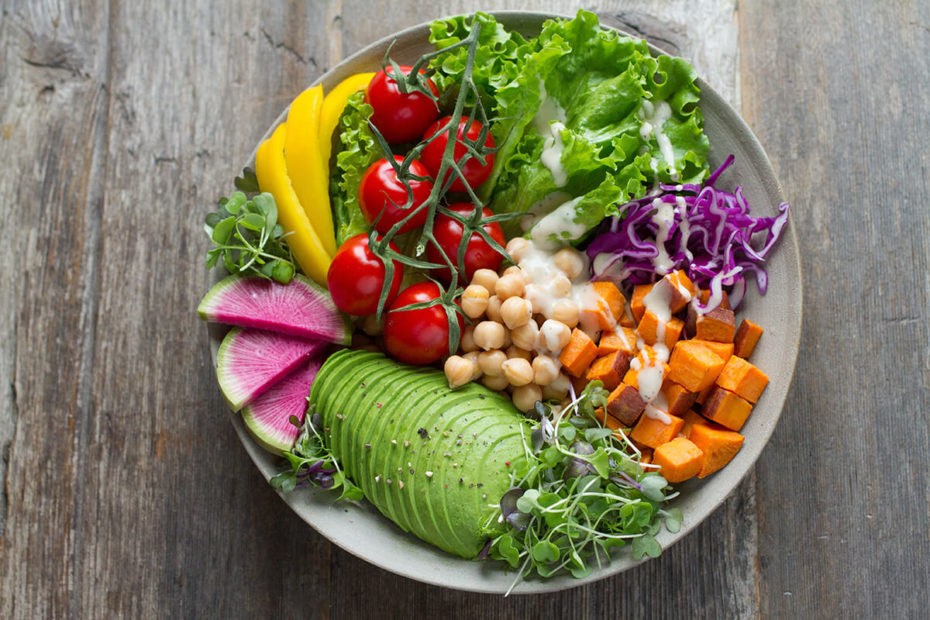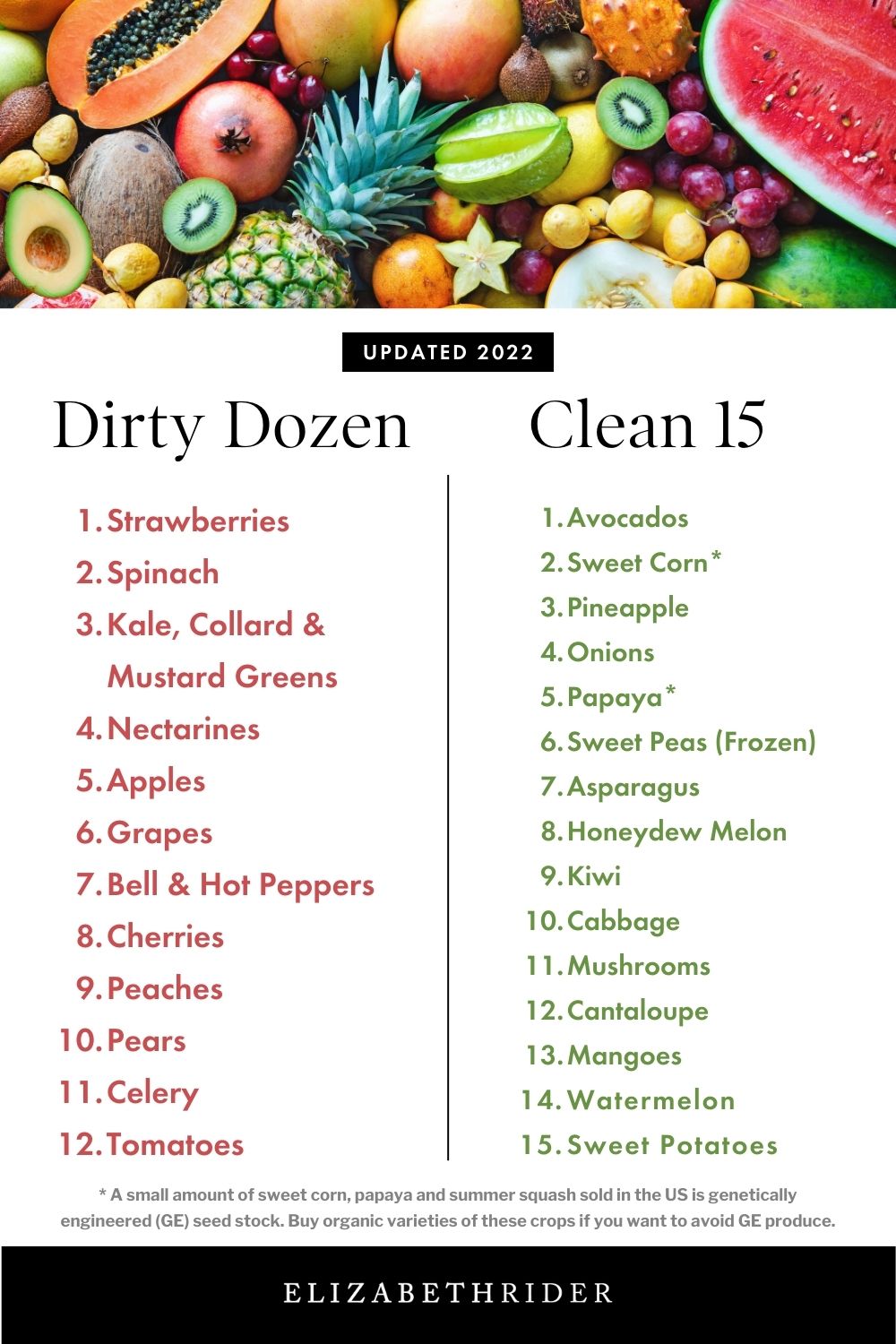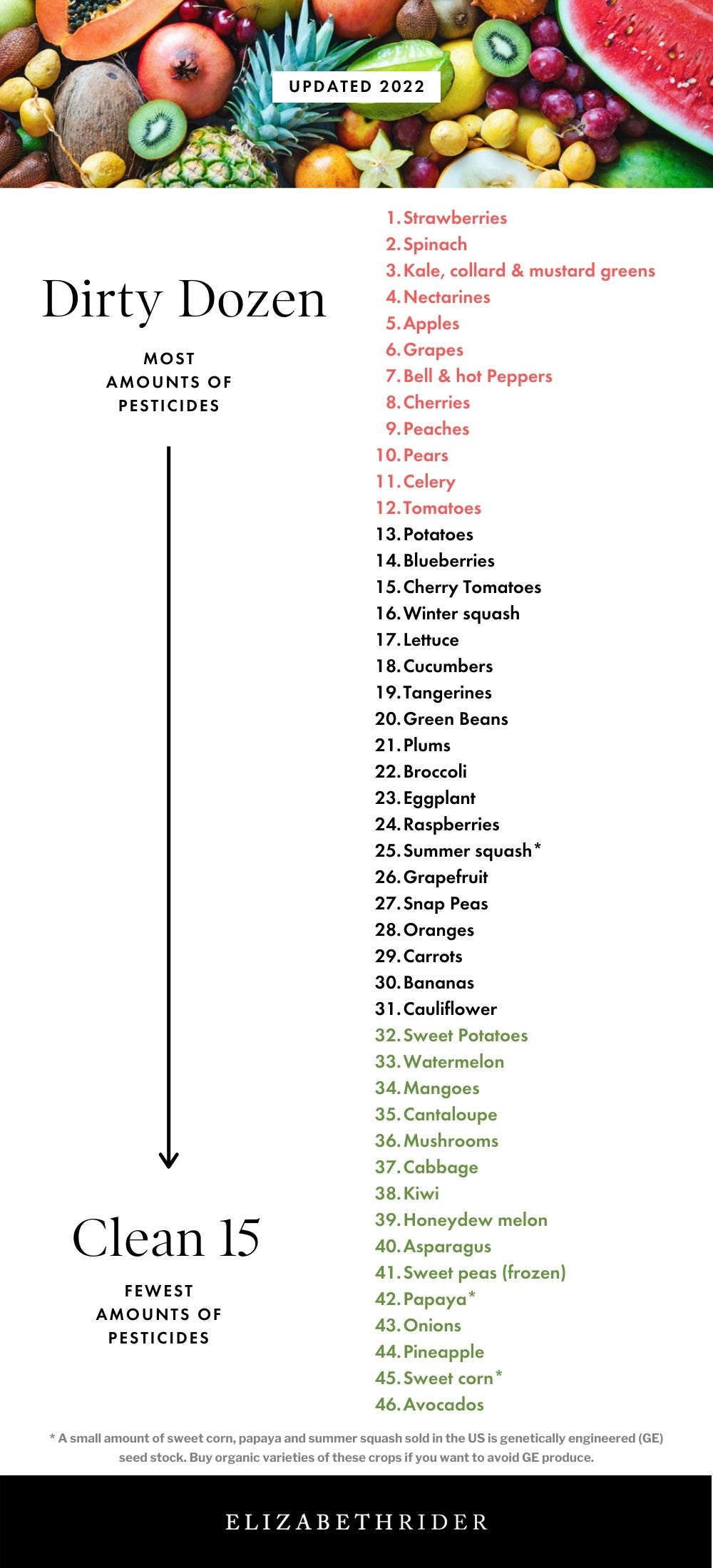
Do you need to get all Organic? Check the Dirty Dozen and Clean Fifteen!
Atleast once a week, I have a patient ask me if they should buy everything organic. The simple answer is no. It is wonderful to learn what fruits and vegetables are laden with pesticides and which may grow just fine without any at all. How the food is grown is vert important. We have to remember that not all “organic” farmers can afford the organic certification process. Local farms often do not spray or use pesticides. I always ask our local farmers about their farm’s practices. I love supporting the local farmer.
The Dirty Dozen and Clean 15 – updated for 2022
I like to share this with all of my weight loss patients on the HCG DIET or SYNERGYrx program at The Natural Path. I ask them to save the information on their phone for easy access while shopping. a The list is updated by the environmental working group once each year. The last update was in 2022.
The Environmental Working Group (EWG) is a non-profit, non-partisan organization dedicated to protecting human health and the environment. They research what’s in our tap water, the safety of our cosmetics, genetically modified organisms (GMO / GE), and the amounts of pesticides in and on our food, among other things.
The EWG’s Shopper’s Guide to Pesticides in Produce™ (aka Dirty Dozen and Clean 15) is updated each year and ranks pesticide contamination on 47 popular fruits and vegetables. The guide is based on results of more than 35,200 samples tested by the U.S. Department of Agriculture and the Food and Drug Administration.
The top 15 foods with the least pesticides are called the Clean 15, while the 12 foods with the most pesticides are called the Dirty Dozen. These lists let you know when to buy organic and when it’s ok to buy conventional.

Here are the most up-to-date Dirty Dozen and Clean 15 lists:
The Dirty Dozen (2022)
Buy these organic whenever possible –
- Strawberries
- Spinach
- Kale, Collard & Mustard Greens
- Nectarines
- Apples
- Grapes
- Bell & Hot Peppers
- Cherries
- Peaches
- Pears
- Celery
- Tomatoes
The Clean 15 (2022)
These are ok to buy conventional (not organic)
- Avocados
- Sweet Corn*
- Pineapple
- Onions
- Papaya*
- Sweet Peas (Frozen)
- Asparagus
- Honeydew Melon
- Kiwi
- Cabbage
- Mushrooms
- Cantaloupe
- Mangoes
- Watermelon
- Sweet Potatoes
* Per the EWG, a small amount of sweet corn, papaya, and summer squash sold in the United States is produced from genetically modified seeds. Buy organic varieties of these crops if you want to avoid genetically modified produce.
Pesticides in Produce
Below is the full list of what falls into what I consider the grey area in between.
For me, the closer the produce is to the Clean 15, the more I feel good about buying conventional.
I also look at the price, and if the organic version doesn’t cost a lot more then I’ll buy it organic. Bananas are a good example—while they didn’t make the Clean 15, they are close. Usually organic bananas are about twenty cents more per pound at my grocery store, so I still buy the organic bananas.

Thanks to Elizabeth Rider for making these beautiful lists.
Tags: dirty dozen clean 15, hcg diet md portland, hcg diet nd portland, hcg diet portland, obesitry doctor portland, obesity doctor portland, organic vs conventional, semaglutide weight loss portland, weight loss doc portland, weight loss nd, weight loss se portlandCategories: AOD weight loss, Eating Well, Food Information, General Wellness, hCG Diet, HCG Weight Loss, Live Healthy, Meal Prep and Recipes, Mindful Eating
